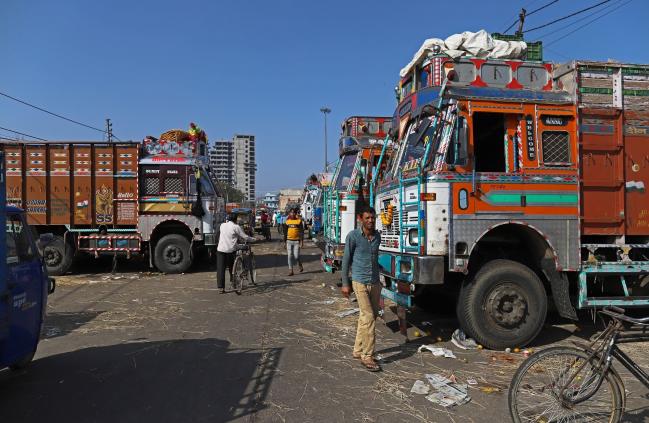(Bloomberg) -- The world’s fastest-growing oil market is showing an uneven recovery two months after easing demand-destroying virus-control measures.
Provisional fuel sales in June had climbed within 88% of 2019 levels from less than half in April in the midst of the world’s biggest lockdown, the oil ministry said citing sales of the three major state-owned retailers. But diesel and petrol, typically the two most-sold fuels and proxies for the nation’s economic health, lagged that mark, while sales of cooking gas surged.
The June data “comes in the backdrop of Indian economy gradually getting momentum with the ease of lockdown restrictions and revival of economic activities that are slowly getting back on track,” the oil ministry said in a statement. The figures represent sales by three state-owned oil refiners and retailers Indian Oil Corp., Bharat Petroleum Corp. and Hindustan Petroleum Corp., which together control about 90% of the country’s petroleum fuels market.
Total fuel sales were propped up by a surge in liquid petroleum gases, which are used for cooking and have seen increased consumption as people spend more time at home.
Sales of diesel, the country’s most-consumed fuel, were at 5.5 million tons in June, up 20% from May but still down 17% from a year ago, according to officials with direct knowledge of the companies’ activities, who asked not to be identified because the data wasn’t public.
Petrol also rebounded from May but was well below 2019 levels, while aviation fuel sales are still 67% below last year’s figures as international flights remain restricted, even as domestic travel has resumed.
Crude throughput at refineries owned by the three state-owned firms are currently at about 85%, up from as low as 55% in early-April, according to the government statement dated July 1.
SOURCE: Government data; all figures in tons
NOTE: * represents data from refinery officials with knowledge of the companies’ fuel sales
Oil Minister Dharmendra Pradhan said last week that he expects fuel demand in the third-biggest oil consumer to return to normal by the end of September. His projection was more bullish than those by the International Energy Agency and the Organization of Petroleum Exporting Countries, which don’t see India’s fuel demand at normal levels until the end of this year.
India’s rebound has remained far behind that of its neighbor China, where demand bounced back swiftly after the nation made early progress in containing the spread of coronavirus and pledged an injection of liquidity into markets.
©2020 Bloomberg L.P.
